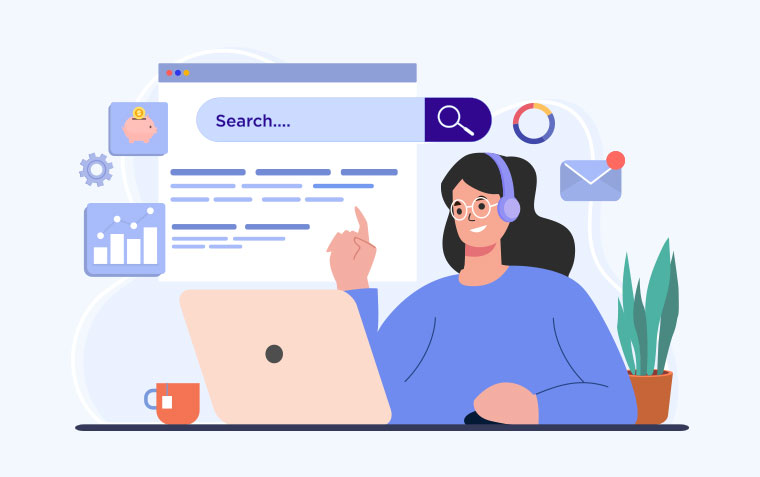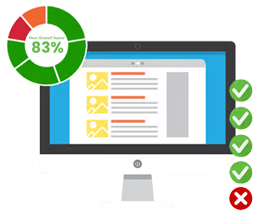Why Is My Website Not on the First Page of Google? Understanding the Factors and Solutions

If you've built a website with high hopes of ranking on the first page of Google but find yourself buried in the depths of search engine results, you're not alone. Achieving that coveted first-page position requires more than just having a website. In this blog post, we'll delve into the common reasons why your website might not be ranking on the first page of Google and explore effective solutions to improve your search engine visibility.
The Quest for Prime Digital Real Estate
Securing a spot on the first page of Google's search results is akin to owning prime real estate in the digital world. It comes with increased visibility, more organic traffic, and the potential to attract valuable customers. However, this prime digital real estate is highly competitive and can be elusive. Let's unravel the mysteries behind why your website may not have claimed its place on Google's first page and discover actionable solutions.
1. Lack of Search Engine Optimisation (SEO)
Issue: Your website may not be optimised for search engines. Without proper SEO, Google and other search engines struggle to understand your content and its relevance to users.
Solution: Invest in on-page and off-page SEO techniques. Optimise your content with relevant keywords, meta data, and high-quality backlinks. Focus on both technical SEO (site structure, page speed) and content SEO (high-quality, valuable content).
2. Competitive Keywords
Issue: Highly competitive keywords can be challenging to rank for, especially if you're just starting. Established websites often dominate these keywords.
Solution: Start by targeting long-tail keywords or niche-specific terms. As your website gains authority, you can gradually compete for more competitive keywords.
3. Thin or Duplicate Content
Issue: Google prioritises unique and valuable content. If your website has thin or duplicate content, it may struggle to rank.
Solution: Create high-quality, original content that provides value to your audience. Remove duplicate content, and ensure your website offers unique insights and information.
4. Inadequate Backlinks
Issue: Backlinks from authoritative websites are a strong ranking factor. If your website lacks quality backlinks, it may not rank well.
Solution: Develop a backlink strategy. Reach out to industry-related websites for guest posts, collaborate with influencers, and consistently produce shareable content to attract backlinks.
5. Slow Page Load Times
Issue: Slow-loading websites can frustrate users and impact rankings. Google values user experience, and page speed is a crucial factor.
Solution: Optimise images, use content delivery networks (CDNs), and employ browser caching to improve page load times.
6. Mobile-Friendliness
Issue: Google prioritises mobile-friendly websites. If yours is not a responsive website or mobile-friendly, it can impact rankings, especially on mobile devices.
Solution: Ensure your website is responsive and provides an excellent user experience on mobile devices.
7. Technical SEO Errors
Issue: Technical issues like broken links, crawl errors, and sitemap problems can hinder your website's performance in search results.
Solution: Regularly audit your website for technical errors and address them promptly. Use tools like Google Search Console to monitor your site's health.
The Road to First-Page Success
Securing a spot on Google's first page is a journey that demands dedication, patience, and continuous improvement. By addressing these common issues and implementing effective solutions, you can increase your website's chances of claiming its place in the prime digital real estate.
Remember that SEO is an ongoing process, and staying up-to-date with search engine algorithms is key to long-term success. With perseverance and the right strategies, you can elevate your website's ranking and enjoy the benefits of first-page visibility.
Talk to us about how we can help with your website's on page SEO





